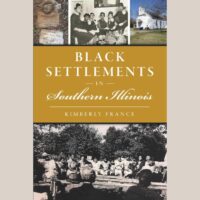On June 5, the night that Doug Alexander suffered a heart attack in downtown Hopkinsville, I received a text message from someone who wanted to know if I had a phone number for Doug’s wife, Sharon. They needed to reach her quickly.
I did not have her number, but I was able to reach Doug’s sister, Diane, through a Facebook message — and from there the family alerted Sharon.
Tragically, Doug died that evening at the age of 70. He had stopped by Hopkinsville Brewing Co., a favorite local spot for him because of its live music on weekends.
I have known Doug’s family most of my life, but in the days that followed his death I learned so many interesting things about him I had never heard. Like the fact that he drove a ’64 Ford Mustang in high school. That he and his father were hunters. That he took piano lessons as a kid from a teacher on South Virginia Street, and that he and his neighborhood friends once put out a newspaper for people in and around Alumni Avenue.
I have Doug’s childhood buddy, Richard Kip Cameron, to thank for sharing these details.
For several days after Doug’s death, Kip regaled his Facebook friends with stories about Doug and their days growing up together. They had known each other since second grade and graduated from high school in the late 1960s.
There are stories of summer camp, of dropping water balloons from the old train bridge over Cox Mill Road, of double dates with local girls and fights with boys over girls. Once, their parents let Doug and Kip ride a Greyhound bus to Eastern Kentucky, where they checked into a lodge at Cumberland Falls. Apparently, no one thought to question their ages. And as Kip tells the story, he was almost carried over the falls — but in the nick of time made a frantic swim to the shore where Doug, who had known better, watched and waited for him.
Doug and Kip went their own ways for a good while after high school but reconnected a little more than a dozen years ago, often through their church, and mine — Grace Episcopal.
I feel like I have Kip to thank for reminding me how important it is to eulogize people when they die. It is a way of stitching together our connections as a community. Kip seemed to do it effortlessly and with genuine affection. Several people have mentioned to me how much they appreciated Kip’s stories about Doug and life in Hopkinsville during the 1950s and ‘60s.
During Doug’s memorial service, our retired priest, the Rev. Alice Nichols, mentioned Kip’s stories of Doug. I believe I’m not the only person who keeps going back to Kip’s Facebook page hoping for one more episode from Doug’s life.
This gave me an idea. Beginning this week, I will share occasional “Notables” — highlights from the lives of people who have a legacy that is significant to Hopkinsville and Christian County.
One of those is Willie Renshaw, who died Tuesday at the age of 86. He was an advertising and marketing manager for many years at the Kentucky New Era. He was also the lead organizer for Warm the Children, an annual campaign that started in 1995 to provide winter clothing for local children whose families needed help with the expense.
Warm the Children started as a collaboration between the New Era and the Hopkinsville Kiwanis Club. (Truth be told, the New Era started Warm the Children to extend goodwill to the community after an increase in subscription rates in the mid-1990s.)
Willie always stressed that every donation to Warm the Children was used to buy clothing. There were no administrative expenses. Under his guidance, Warm the Children grew from approximately $10,000 in annual donations to more than $20,000. Many years, more than 200 local children got to shop for new winter clothing because of the program.
Here’s hoping the local Kiwanians can keep the effort going for many more years.
Another person to remember this week is Gennie Netz, who wrote beautifully about rural life, history, genealogy and her family in an excellent blog called “Prairie Bluestem.”
Also notable are two women who were local teachers — Donna Lewis McGee and Nyra Lee Edwards.
Donna taught kindergarten at Holiday Elementary School the first year it was offered in local public schools, starting in 1977.
Nyra taught at Durrett Avenue Elementary School, a segregated school for Black students, and later in the Fort Campbell schools. Her teaching career lasted four decades.
A scholarship is being developed as a memorial to Nyra through the Modernette Civic Club. She was an active member of the club until moving to Colorado to live with family.
Billie Todd, who is the Modernette president, told me on Friday that plans are being finalized to offer a scholarship to a local high school graduate who goes to Kentucky State University to pursue a teaching degree. The club is working with the family to establish the criteria. This would be separate from the fund the civic club manages to award its own scholarships — usually two annually.
Jennifer P. Brown is co-founder, publisher and editor of Hoptown Chronicle. You can reach her at editor@hoptownchronicle.org. She spent 30 years as a reporter and editor at the Kentucky New Era. She is a co-chair of the national advisory board to the Institute for Rural Journalism and Community Issues, governing board president for the Kentucky Historical Society, and co-founder of the Kentucky Open Government Coalition.


